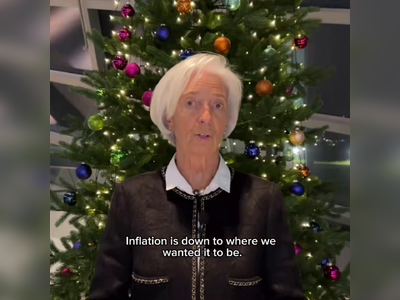Monaco's Interim Employment Landscape: Legislative Developments and Social Considerations
A review of the ongoing discussions around a new law governing interim employment practices in Monaco.
Interim work is a common practice in Monaco, yet it is not governed by specific legislation.
Currently, interim workers and employers rely on a code of ethics established for temporary work, which has been in place since 1991. This code, initiated by interim agencies to safeguard workers' rights, has undergone various amendments over the years to better reflect the evolving nature of interim employment.
Discussions surrounding a comprehensive legislative framework gained traction under Christophe Robino, the Minister of Social Affairs and Health in Monaco, who aims to formalize regulations governing this sector.
Despite the reliance on the existing ethical framework, many business owners remain unaware of its existence.
A recent inquiry revealed that a substantial number of employers were unfamiliar with the code, leading to uncertainties in how interim rights are managed on the ground.
Robino acknowledged that the proposed law is in advanced stages, having faced delays primarily due to the COVID-19 pandemic.
He emphasized the importance of consulting with sector stakeholders before any official presentation of the bill.
Currently, 14 out of the 17 interim agencies in Monaco have signed onto this ethical charter, yet it remains largely unknown within the businesses that employ interim workers.
Issues regarding the rights of these workers on the operational front are mixed.
Many employers assert that they apply the same rights to interim workers as they do for permanent staff, despite the general lack of awareness regarding the code.
The charter itself spans 40 pages and outlines key principles governing interim labor, such as the limitations on the use of interim workers, appropriate compensation practices, and essential social guarantees.
Monaco's interim sector contrasts sharply with that of neighboring France, which has a well-defined legal framework encompassing around forty articles relating specifically to interim work.
Various voices in Monaco, including Renaud Durand, president of the local interim workers' union, suggested looking to smaller nations for tailored legislative approaches rather than mirroring the extensive French model.
Robino, who previously voiced intentions to refine labor regulations in 2019, confirmed that the establishment of a new law remains a priority during his current term.
He expressed that this legislative initiative is not merely a response to noted abuses but aims to provide a structured framework for interim practices prevalent among businesses.
The anticipated legislation has prompted dialogue about the real-world conditions and specific challenges faced by interim workers in Monaco.
It is estimated that there are approximately 6,878 interim workers in the principality as of 2023, highlighting the significance of this topic for a sizable segment of the workforce.
Despite the ongoing discussions, opinions differ regarding the necessity and the details of such a law.
Lobono, a national advisor and head of the committee for social interests and various affairs, indicated a general satisfaction with the current balance of interim employment operations, suggesting that the existing informal frameworks have worked effectively over the years without formal legislation.
Yet, challenges remain.
There are calls for the new law to be pragmatic, reflecting the unique economic landscape of Monaco, where the majority of enterprises are small businesses with an average of 14-15 employees.
Stakeholders stress the need for regulations that resonate with the realities of the temporary employment market while safeguarding the rights of interim workers.
Currently, interim workers and employers rely on a code of ethics established for temporary work, which has been in place since 1991. This code, initiated by interim agencies to safeguard workers' rights, has undergone various amendments over the years to better reflect the evolving nature of interim employment.
Discussions surrounding a comprehensive legislative framework gained traction under Christophe Robino, the Minister of Social Affairs and Health in Monaco, who aims to formalize regulations governing this sector.
Despite the reliance on the existing ethical framework, many business owners remain unaware of its existence.
A recent inquiry revealed that a substantial number of employers were unfamiliar with the code, leading to uncertainties in how interim rights are managed on the ground.
Robino acknowledged that the proposed law is in advanced stages, having faced delays primarily due to the COVID-19 pandemic.
He emphasized the importance of consulting with sector stakeholders before any official presentation of the bill.
Currently, 14 out of the 17 interim agencies in Monaco have signed onto this ethical charter, yet it remains largely unknown within the businesses that employ interim workers.
Issues regarding the rights of these workers on the operational front are mixed.
Many employers assert that they apply the same rights to interim workers as they do for permanent staff, despite the general lack of awareness regarding the code.
The charter itself spans 40 pages and outlines key principles governing interim labor, such as the limitations on the use of interim workers, appropriate compensation practices, and essential social guarantees.
Monaco's interim sector contrasts sharply with that of neighboring France, which has a well-defined legal framework encompassing around forty articles relating specifically to interim work.
Various voices in Monaco, including Renaud Durand, president of the local interim workers' union, suggested looking to smaller nations for tailored legislative approaches rather than mirroring the extensive French model.
Robino, who previously voiced intentions to refine labor regulations in 2019, confirmed that the establishment of a new law remains a priority during his current term.
He expressed that this legislative initiative is not merely a response to noted abuses but aims to provide a structured framework for interim practices prevalent among businesses.
The anticipated legislation has prompted dialogue about the real-world conditions and specific challenges faced by interim workers in Monaco.
It is estimated that there are approximately 6,878 interim workers in the principality as of 2023, highlighting the significance of this topic for a sizable segment of the workforce.
Despite the ongoing discussions, opinions differ regarding the necessity and the details of such a law.
Lobono, a national advisor and head of the committee for social interests and various affairs, indicated a general satisfaction with the current balance of interim employment operations, suggesting that the existing informal frameworks have worked effectively over the years without formal legislation.
Yet, challenges remain.
There are calls for the new law to be pragmatic, reflecting the unique economic landscape of Monaco, where the majority of enterprises are small businesses with an average of 14-15 employees.
Stakeholders stress the need for regulations that resonate with the realities of the temporary employment market while safeguarding the rights of interim workers.











